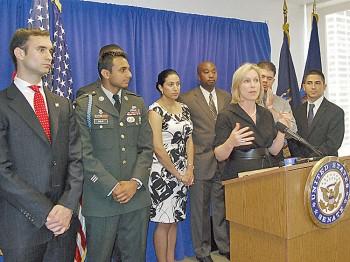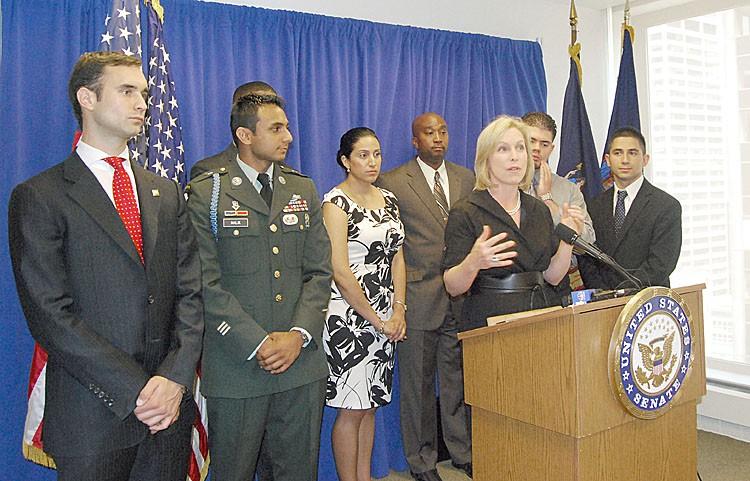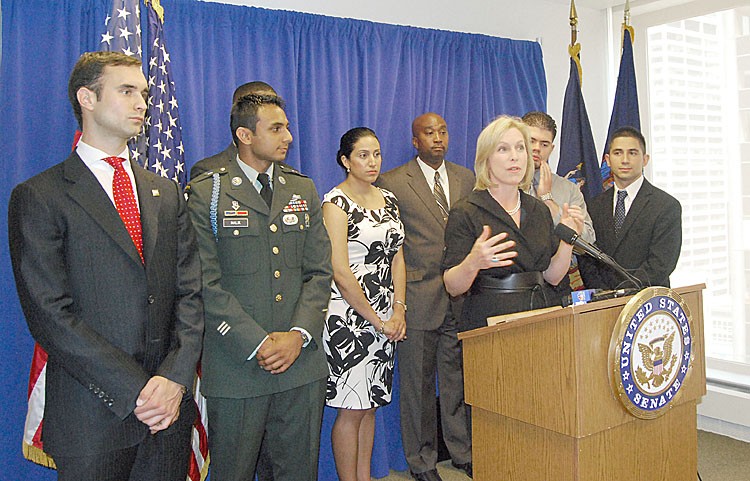Hiring Heroes Act May Provide Jobs for Veterans
Out of 17,000 New York City soldiers who have been in service since 9/11, over 2,000 are currently unemployed.

JOBS FOR VETS: Sen. Kristen Gillibrand (C) stands Sunday with young New York City veterans to announce the Hiring Heroes Act of 2011. Catherine Yang/The Epoch Times
|Updated:






